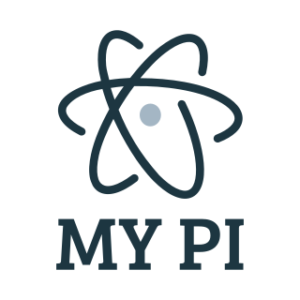
What is Team Discovery by The Predictive Index?
Unlock the full potential of your team with data-driven insights from Team Discovery™, helping you build a cohesive, high-performing unit aligned with your strategic goals.
Reading Time: 8 minutes
Recruitment is an essential part of any organization, including pharmaceutical companies. In the pharmaceutical industry, recruiting the right candidates is crucial because of the industry’s unique nature. The pharmaceutical industry is highly regulated, and the products it produces have a direct impact on human lives. Therefore, pharmaceutical companies must hire individuals who possess the necessary skills, knowledge, and experience to develop, manufacture and market safe and effective products. Assessments in recruitment play a critical role in identifying the right candidate for the job. In this article, we will discuss the types of assessments used by pharmaceutical companies and provide examples for small biotechnology companies, medium-sized pharmaceutical companies, and large pharmaceutical companies.

Assessments in recruitment can be classified into the following four categories:
Small biotechnology companies are characterized by their limited resources and the need to operate with a lean workforce. In such companies, recruitment is critical because the wrong hire can have a significant impact on the company’s financial stability. Small biotechnology companies often use assessments to identify candidates who possess the necessary skills and personality traits for the job.
Examples of assessments used in small biotechnology companies include cognitive assessments such as aptitude tests and job knowledge tests. These tests are used to assess a candidate’s ability to learn, reason, and solve problems. Personality assessments, such as the Big Five Personality Traits, are also commonly used to assess a candidate’s suitability for the job.
Assessments are important in small biotechnology companies because they help to identify candidates who are a good fit for the company culture and possess the necessary skills to perform the job. By using assessments, small biotechnology companies can reduce the risk of hiring the wrong candidate and ensure the long-term success of the company.
You May Also Be Interested In
Simply put, it’s aligning your life goals and ambitions to your career and achieving more sooner. I empower you to write your own narrative with forward-looking career branding …
Medium-sized pharmaceutical companies operate with more resources than small biotechnology companies but less than large pharmaceutical companies. Recruitment is crucial for medium-sized companies because they are often competing with large pharmaceutical companies for top talent. Medium-sized pharmaceutical companies use a variety of assessments to identify candidates who possess the necessary skills and personality traits for the job.
Examples of assessments used in medium-sized pharmaceutical companies include cognitive assessments such as aptitude tests and job knowledge tests. Personality assessments such as the Big Five Personality Traits and behavioral assessments such as situational judgment tests are also commonly used. Skills assessments such as technical skills tests and communication skills tests may be used for specific positions.
Assessments are important in medium-sized pharmaceutical companies because they help to identify candidates who are a good fit for the company culture and possess the necessary skills to perform the job. By using assessments, medium-sized pharmaceutical companies can reduce the risk of hiring the wrong candidate and ensure the long-term success of the company.
Large pharmaceutical companies have a significant impact on the healthcare industry, and recruitment is critical for their success. Large pharmaceutical companies use a variety of assessments to identify candidates who possess the necessary skills and personality traits for the job.
Examples of assessments used in large pharmaceutical companies include cognitive assessments such as aptitude tests and job knowledge tests. Personality assessments such as the Big Five Personality Traits and behavioral assessments such as situational judgment tests are commonly used. Skills assessments such as technical skills tests and communication skills tests may be used for specific positions.
Large pharmaceutical companies may also use assessment centers, which are a combination of various assessments that simulate real-world situations. These centers assess candidates’ competencies in multiple areas and provide a more comprehensive picture of the candidate’s abilities.
Assessments are crucial in large pharmaceutical companies because they help to identify candidates who are a good fit for the company culture and possess the necessary skills to perform the job. By using assessments, large pharmaceutical companies can reduce the risk of hiring the wrong candidate and ensure the long-term success of the company.

Psychometric assessments can help pharma companies experiencing a skill shortage to identify talent by giving employers insight into an individual’s skills, strengths, and weaknesses. This can help hiring managers to get a better understanding of a candidate’s abilities, allowing them to make an informed decision about whether the candidate is a good fit for the job.
The use of assessments can help pharma companies identify talented candidates who may have been overlooked by traditional recruitment methods. These assessments can identify candidates with the potential to excel in a given role, even if they lack the experience or qualifications typically required.
Psychometric assessments can also provide pharma companies with valuable data on the skillsets of their current workforce, allowing them to better identify potential areas of improvement. This can be especially helpful in a tight labor market when employers are struggling to find qualified candidates.

For the past 10 years, we have partnered with pharmaceutical companies to grow their teams across 3 continents. During this time we have compiled a list of assessments that have been used by these companies. Below is an example of some the assessments used by leading pharma companies:
Pfizer: Uses cognitive assessments such as the Watson Glaser Critical Thinking Appraisal, as well as personality assessments such as the Hogan Personality Inventory. The company also uses situational judgment tests and assessment centers.
Merck: Uses cognitive assessments such as the Wonderlic Personnel Test, as well as personality assessments such as the Caliper Profile. The company also uses situational judgment tests and assessment centers.
GlaxoSmithKline: Uses cognitive assessments such as the Graduate and Managerial Assessment (GMA) test, as well as personality assessments such as the Occupational Personality Questionnaire. The company also uses situational judgment tests and assessment centers.
Sanofi: Uses cognitive assessments such as the Criteria Cognitive Aptitude Test (CCAT), as well as personality assessments such as the Hogan Personality Inventory. The company also uses situational judgment tests and assessment centers.
Johnson & Johnson: Uses cognitive assessments such as the Predictive Index (PI), as well as personality assessments such as the Myers-Briggs Type Indicator. The company also uses situational judgment tests and assessment centers.
Biogen: Uses situational judgment tests provided by Cut-e (Aon Assessment Solutions).
Vertex: Uses the Hogan Personality Inventory and situational judgment tests provided by CEB (now part of Gartner).
Novartis: Uses aptitude tests provided by SHL, personality assessments such as the NEO-PI-R, and situational judgment tests provided by Cubiks (now part of PSI Services).
Roche: Uses cognitive assessments provided by Saville Assessment (now part of Willis Towers Watson), personality assessments such as the Caliper Profile, and situational judgment tests provided by CEB.
AstraZeneca: Uses cognitive assessments such as the Kenexa Prove It Test, personality assessments such as the Hogan Personality Inventory, and situational judgment tests provided by CEB.
Bristol Myers Squibb (BMS): Uses aptitude tests provided by SHL, situational judgment tests provided by CEB, and personality assessments such as the Hogan Personality Inventory provided by Hogan Assessments.
Sanofi: Uses cognitive assessments such as the Wonderlic Personnel Test, personality assessments such as the NEO-PI-R provided by Pearson, and situational judgment tests provided by SHL.
Eli Lilly: Uses cognitive assessments such as the Watson-Glaser Critical Thinking Appraisal provided by Pearson, personality assessments such as the Hogan Personality Inventory provided by Hogan Assessments, and situational judgment tests provided by CEB.
Takeda: Uses cognitive assessments such as the Watson-Glaser Critical Thinking Appraisal provided by Pearson, personality assessments such as the Big Five Personality Test provided by Truity Psychometrics, and situational judgment tests provided by Cubiks (now part of PSI Services).
AbbVie: Uses cognitive assessments such as the Kenexa Prove It Test, personality assessments such as the Caliper Profile provided by Caliper Corporation, and situational judgment tests provided by Saville Assessment (now part of Willis Towers Watson).
Amgen: Uses cognitive assessments such as the Watson-Glaser Critical Thinking Appraisal provided by Pearson, personality assessments such as the NEO-PI-R provided by Pearson, and situational judgment tests provided by CEB.

Assessments play a critical role in the recruitment process of pharmaceutical companies. Pharmaceutical companies use a variety of assessments to identify candidates who possess the necessary skills and personality traits for the job. Small biotechnology companies, medium-sized pharmaceutical companies, and large pharmaceutical companies all use assessments to identify the right candidates for the job. Assessments help to reduce the risk of hiring the wrong candidate and ensure the long-term success of the company. By using assessments, pharmaceutical companies can identify candidates who are a good fit for the company culture and possess the necessary skills to perform the job.
You May Also Be Interested In
As organizations become more competitive, it has become increasingly important for them to hire employees with the right skills and fit for the job. To achieve this, many employers are using psychometric assessments to evaluate potential employees.
360 Talent Solutions Ltd is an Associate Partner of Humanostics® , a PI Certified Partner authorised to use the science, assessment software, and curriculum of management workshops of The Predictive Index.
In partnership with Humanostics, we provide companies in the UK and across Europe access to the assessment tools provided by The Predictive Index.
Take the 6-minute PI Behavioral Assessment™ today. Once you have completed the 6-minute assessment, I will send you a Full Behavioral Report by Predictive Index.
From supporting the growth of leading pharma companies over the past 10 years, I have learnt that when it comes to predicting future performance, technology is key:
For me, hiring without the use of psychometric assessments is like trying to put together a jigsaw puzzle with pieces missing … and no picture on the box. It’s not fun, it takes longer, and when you are almost finished, you realise you have pieces missing.
Take the assessment today and start measuring more to improve your recruitment.
If you are interested in learning more or are ready to incorporate behavioral data into your recruitment process, please contact me today, I will be happy to help.
Let’s get started!
Dave Crumby
Founder at 360 Talent Solutions
Certified Predictive Index Practitioner

Unlock the full potential of your team with data-driven insights from Team Discovery™, helping you build a cohesive, high-performing unit aligned with your strategic goals.

Explore how ‘MY PI: Using Science to Transform Your Workplace’ leverages behavioural science to revolutionise HR practices, offering in-depth insights, practical tools, and a vibrant community for HR professionals.

Join The Swiss Talent Optimisation Hub (STOH) to connect with HR professionals dedicated to leveraging Predictive Index tools and behavioural science to overcome unique challenges faced by Swiss businesses and drive organisational success.

Discover how Swiss companies can optimise their hiring and talent management strategies with the Predictive Index, a powerful tool that enhances workforce insights and decision-making, supported by Humanostics and 360 Talent Solutions.
| Cookie | Duration | Description |
|---|---|---|
| cookielawinfo-checbox-analytics | 11 months | This cookie is set by GDPR Cookie Consent plugin. The cookie is used to store the user consent for the cookies in the category "Analytics". |
| cookielawinfo-checbox-functional | 11 months | The cookie is set by GDPR cookie consent to record the user consent for the cookies in the category "Functional". |
| cookielawinfo-checbox-others | 11 months | This cookie is set by GDPR Cookie Consent plugin. The cookie is used to store the user consent for the cookies in the category "Other. |
| cookielawinfo-checkbox-necessary | 11 months | This cookie is set by GDPR Cookie Consent plugin. The cookies is used to store the user consent for the cookies in the category "Necessary". |
| cookielawinfo-checkbox-performance | 11 months | This cookie is set by GDPR Cookie Consent plugin. The cookie is used to store the user consent for the cookies in the category "Performance". |
| viewed_cookie_policy | 11 months | The cookie is set by the GDPR Cookie Consent plugin and is used to store whether or not user has consented to the use of cookies. It does not store any personal data. |